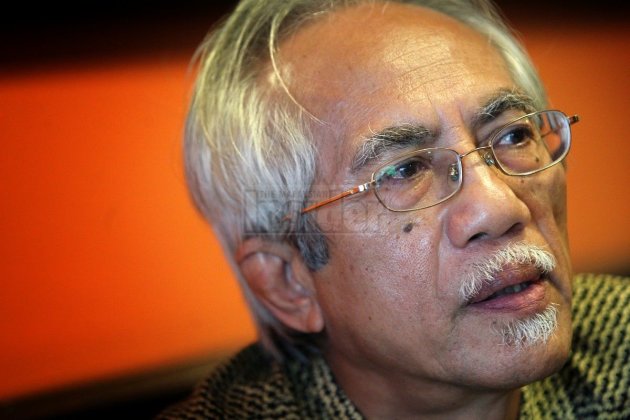PENULIS ada bertanya kepada beberapa rakan mengenai persoalan di atas dan kebanyakan daripada mereka menjawab lima peratus.
Ada juga yang menggeleng kepala dan menjawab kosong peratus. Jawapannya tinggi sedikit; gaji penengah pekerja di Malaysia naik 6.5%, ataupun 4.4% setelah ditolak kadar inflasi.
Jika anda berasa ia ‘boleh tahan’, jangan lupa bahawa ia adalah bersamaan dengan kenaikan RM100 sebulan, daripada gaji penengah RM1,500 sebulan pada tahun 2014 kepada RM1,600 pada tahun lepas. Ya, RM100 sebulan.
Menurut Laporan Penyiasatan Gaji dan Upah 2015 yang dikeluarkan Jabatan Statistik Negara akhir bulan lepas, separuh daripada pekerja di Malaysia menerima gaji kurang dari RM1,600 sebulan.
Pekerja di Sabah berada di kedudukan yang paling teruk dengan gaji penengah berjumlah RM1,100 pada tahun lepas, ataupun hanya RM300 lebih daripada paras gaji minimum mereka.
Nasib pekerja yang bergaji sedikit bukan hanya fenomena di Sabah, malah di hampir kesemua negeri.
Hanya di Selangor, Putrajaya, dan Kuala Lumpur sahaja gaji penengah melepasi paras RM2,000 sebulan, manakala Putrajaya memperoleh gaji penengah tertinggi, iaitu RM2,967 sebulan. Tidak ada satu negeri pun di mana pekerjanya mendapat gaji penengah melebihi paras RM3,000 sebulan!
Negeri yang kaya dan maju seperti Pulau Pinang, Sarawak, Selangor dan Kuala Lumpur juga tidak menggambarkan bahawa pekerjanya mendapat gaji yang lumayan. Sebagai contoh, hampir separuh daripada pekerja di Pulau Pinang menerima gaji bulanan kurang dari RM1,700; Selangor, RM2,175 dan Sarawak, RM1,260 sebulan. Ini merupakan kenaikan sebanyak RM60 berbanding tahun sebelumnya.
Malah, negeri terkaya di Malaysia, Kuala Lumpur pun separuh daripada pekerjanya mendapat gaji kurang daripada RM2,200 sebulan.
Tidak semua pekerja mendapat kenaikan gaji sebanyak 6.5%. Jika diteliti peningkatan gaji pekerja di negeri yang kaya dan maju seperti Kuala Lumpur dan Pulau Pinang, gaji mereka langsung tidak bertambah. Gaji penengah di kedua-dua buah negeri ini pada tahun 2015 adalah sama seperti tahun 2014, tidak berganjak walaupun satu peratus.
Negeri yang kurang maju seperti Kedah juga menerima nasib yang hampir sama di mana pekerja penengah di negeri jelapang padi itu menerima kenaikan sebanyak RM20 pada tahun lepas. Malah, jika ditolak dengan kadar inflasi, pendapatan sebenar mereka merosot.
Tidak hairanlah yang teruk terjejas adalah mereka yang tinggal di ibu kota. Manakan tidak, gaji tidak naik, tetapi kos sara hidup melonjak secara mendadak.
Pada tahun lepas, kadar tol naik hampir 30% dan tambang LRT dan komuter naik di antara 36% hingga 57%.
Ini belum termasuk lagi dengan kenaikan harga makanan. Pada masa sama, subsidi makanan seperti padi dan tepung juga telah dihapuskan.
Mengapa ini berlaku? Nasib yang menimpa para pekerja bukanlah suatu misteri. Jika dilihat, ekonomi negara, walaupun masih berkembang, tetapi mengucup sedikit pada tahun 2015 berbanding tahun sebelumnya, daripada 6% kepada 5%. Prestasi sektor korporat tidak memberangsangkan yang mana pendapatan korporat jatuh 12.1% pada tahun 2015 berbanding hanya 1.9% pada tahun 2014.
Ini memberi impak besar kepada pekerja, yang mana peratusan mereka tidak bekerja telah meningkat sebanyak 9.2% pada 2015. Lebih teruk lagi, peratusan pekerja yang telah diberhentikan meningkat 49% pada 2015 berbanding 2014, tertinggi sejak tahun 2010.
Persoalannya sekarang, adakah tahun 2016 akan memberi harapan dan sinar baharu untuk para pekerja di negara bertuah ini? Jawapannya bukan manis, tetapi pahit.
Prestasi ekonomi dunia dan negara dijangka berkembang pada paras lebih rendah berbanding 2015. Malah, ekonomi negara hanya mampu berkembang pada kadar 4.2% pada suku pertama tahun ini, peningkatan yang terburuk sejak enam tahun lalu.
Jualan runcit juga jatuh 4.4% pada suku pertama tahun ini, berbanding peningkatan 4.6% pada tahun lepas. Pasaran buruh masih lemah, jumlah mereka yang tidak bekerja semakin meningkat sepanjang lima bulan pertama tahun ini. Pendapatan korporat pada suku pertama tahun ini juga berkurangan berbanding tahun sebelumnya.
Sekilas pandang, harapan kenaikan gaji yang lebih tinggi untuk tahun 2016 adalah amatlah tipis sekali.
Harapan penulis hanya satu, janganlah lagi rakyat dibebankan dengan kenaikan tol, kadar elektrik, air, dan sebagainya. Lupakan sebentar niat untuk menaikkan harga, setidak-tidaknya sehingga ekonomi negara kembali pulih dan gaji pekerja meningkat sedikit.




